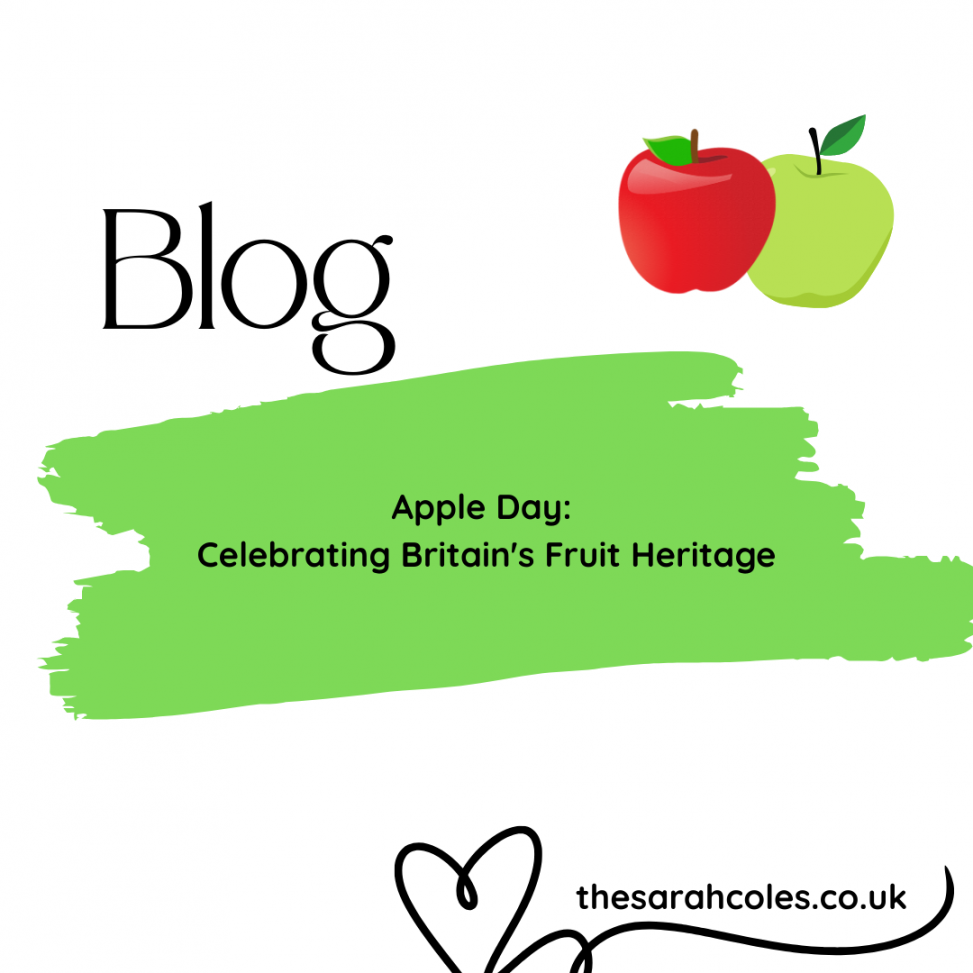Every October, communities across Britain come together to celebrate one of our most beloved fruits. Apple Day brings families, schools and communities together to honour the humble apple and discover the incredible variety that grows right on our doorstep. Whether you’re a seasoned gardener or simply love a good apple crumble, this special day offers something delicious for everyone.
This celebration goes far beyond just eating apples. It’s about connecting with local heritage, supporting traditional orchards, and learning about the hundreds of apple varieties that call Britain home. From ancient heritage breeds to modern favourites, Apple Day showcases the rich tapestry of flavours, colours and stories that make British apples truly special.
What is Apple Day?
Apple Day is an annual celebration dedicated to apples and orchards, particularly focusing on local varieties and traditional apple-growing heritage. Created to raise awareness about the diversity of apples and the importance of preserving old orchards, this event encourages people to discover, taste and celebrate the many varieties of apples grown across Britain.
The day emphasises the cultural and environmental significance of apples in British life. Traditional orchards provide homes for wildlife, preserve genetic diversity, and maintain connections to local history and customs. By celebrating Apple Day, communities help ensure these valuable spaces and traditions continue for future generations.
You can join in Apple Day celebrations by attending local events, visiting orchards, trying apple tastings, or simply learning more about the apple varieties that grow near you. Many events include apple identification sessions where experts help you discover exactly which varieties you’ve been growing in your garden.
When is Apple Day Celebrated?
Apple Day takes place on 21st October each year, perfectly timed to coincide with the height of the apple harvest season. This date was carefully chosen to ensure maximum variety and quality of apples would be available for tastings and celebrations.
The timing allows orchards and apple growers to showcase their finest harvest. October apples are at their peak flavour, having had the full growing season to develop their distinctive characteristics. Many varieties reach perfect ripeness during this period, making it ideal for comparing different tastes, textures and appearances.
Local celebrations often extend beyond the single day, with some communities holding Apple Week events or weekend festivals. This gives more people the opportunity to participate and allows for larger celebrations that might include workshops, demonstrations, and extended activities for families.
The History Behind Apple Day
Apple Day began in 1990, founded by the environmental charity Common Ground. The organisation created this celebration to draw attention to the rapid loss of traditional British orchards and the decline in apple variety diversity. They recognised that many heritage apple varieties were disappearing, taking with them centuries of local knowledge and cultural heritage.
The founders chose apples as a symbol because they represent the connection between people and their local landscape. Traditional orchards were once a common feature across Britain, providing food, employment, and habitat for wildlife. However, modern farming practices and urban development had led to the loss of over 60% of traditional orchards since 1950.
Common Ground wanted to encourage communities to value and protect their local apple heritage. They promoted the idea that diversity in apples reflects diversity in landscapes, communities, and cultures. The first Apple Day events were small, local gatherings, but the concept quickly spread across the country.
The celebration gained momentum throughout the 1990s as more people discovered the incredible variety of British apples. Schools, community groups, National Trust properties, and local councils began organising their own events. Today, hundreds of Apple Day celebrations take place across Britain each October.
How Apple Day is Celebrated
Apple Day celebrations take many different forms, but most centre around bringing communities together to explore and enjoy apples. Here are some of the most popular ways people celebrate this fruity festival:
Apple Tastings and Identification
Many events feature apple tastings where you can sample dozens of different varieties. Expert pomologists (apple specialists) often attend to help identify unknown varieties and share knowledge about growing, storing, and using different types of apples. These tastings help people discover new favourite varieties and learn about the incredible diversity of British apples.
You might taste everything from sharp, tangy cooking apples to sweet dessert varieties, discovering flavours you never knew existed. Some apples are perfect for eating fresh, while others shine when turned into juice, cider or baked goods.
Traditional Games and Activities
Apple Day events often include traditional apple-related games and activities. Apple bobbing remains a popular favourite, along with apple and spoon races, longest peel competitions, and apple carving demonstrations. These activities connect participants with historical traditions while providing fun for all ages.
Many celebrations feature demonstrations of traditional skills like wassailing (a ceremony to encourage apple trees to produce good harvests), pruning techniques, and heritage crafts using apple wood.
Educational Workshops
Schools and community groups often organise educational activities around Apple Day. These might include lessons about apple tree life cycles, the importance of pollinators, sustainable growing practices, and the role of orchards in supporting wildlife.
Children particularly enjoy planting apple seeds or young trees, learning about different varieties, and understanding how apples travel from tree to table. These activities help foster appreciation for local food production and environmental stewardship.
Local Food and Craft Markets
Many Apple Day celebrations incorporate local food markets featuring apple-based products. You might find traditional apple juices, ciders, preserves, baked goods, and even apple-scented soaps and candles. These markets support local producers and demonstrate the many ways apples can be used.
Craft demonstrations might include basket weaving with apple wood, traditional woodworking techniques, and creating natural dyes using apple bark and leaves.
Community Orchard Projects
Some communities use Apple Day as an opportunity to plant new community orchards or tend existing ones. These projects bring people together for practical conservation work while creating valuable green spaces that will benefit the community for generations.
Planting heritage varieties helps preserve genetic diversity and ensures traditional apple knowledge continues. Community orchards also provide educational opportunities, wildlife habitat, and sources of local food.
Getting Involved in Apple Day
You can easily join Apple Day celebrations in your area by checking local event listings, visiting nearby National Trust properties, or contacting community groups. Many libraries, schools, and environmental organisations host their own celebrations.
If there aren’t any events near you, consider organising your own small celebration. Gather friends and neighbours for an apple tasting, visit a local orchard, or simply spend time learning about the apple varieties that grow in your region.
Start by identifying any apple trees in your garden or neighbourhood. Take photos and samples to local gardening groups or agricultural colleges for identification. You might discover you’ve been growing a rare heritage variety without realising it.
Consider planting an apple tree if you have space. Choose a variety that’s well-suited to your local climate and soil conditions. Local nurseries can provide advice about which varieties grow best in your area and when to plant them.
Preserving Apple Heritage for the Future
Apple Day serves as an important reminder of the need to preserve traditional orchards and heritage apple varieties. You can contribute to this conservation effort by supporting local apple growers, choosing diverse varieties when shopping, and learning about the apples that grow near you.
Traditional orchards provide crucial habitat for wildlife including birds, bats, insects, and small mammals. By supporting Apple Day events and orchard conservation projects, you help maintain these valuable ecosystems while preserving cultural heritage for future generations.
Every apple variety tells a story about the place where it was developed, the people who grew it, and the conditions that shaped its characteristics. By celebrating Apple Day, we honour these stories and ensure they continue to enrich our communities and landscapes.
Further Reading: Brilliant Autumn Half Term Activities to Keep Kids Happy, When and How to Thin Your Fruit Trees, Grow Your Own: Best Fruits for Your Garden








